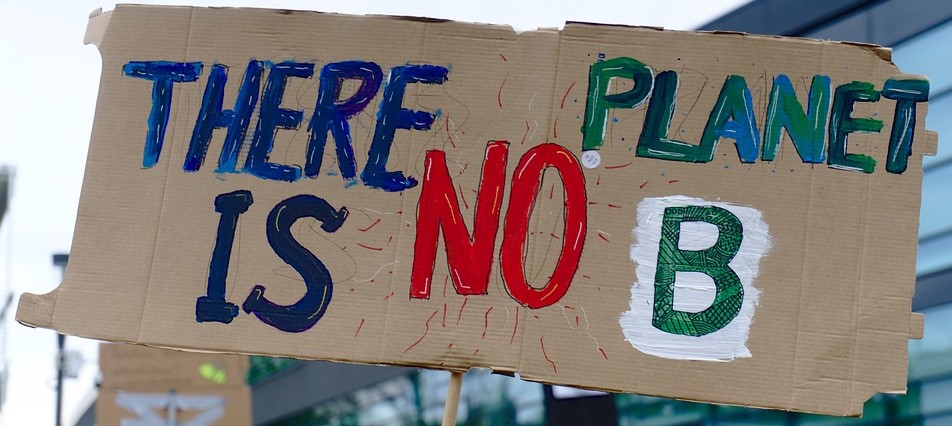
Deputy Digital Editor Holly Pittaway discusses why participating in climate strikes and living an eco-friendly lifestyle is not enough if you still eat meat
Picture this – it’s the day of another climate strike march in your city; you’ve spent weeks in advance creating signs, banners, and t-shirts emblazoned with an eco-friendly message; the dire state of the world kept you up all night as you plummeted further and further into your own existentialism; you didn’t turn up to work this morning in solidarity with your co-workers, all making a stance against the government for refusing to acknowledge the severity of the climate emergency; you spent all day at the march, shouting at the top of your lungs, ‘wake up to climate change!’, ‘no more fossil fuels!’ and ‘respect our planet!.’ Finally, after a long, hard day of activism, you celebrate by going to McDonald’s on the way home where you order a Big Mac meal – wait… something doesn’t sound right there, does it?
The meat industry globally creates the same amount of greenhouse gases as all the vehicles in the world
In 2018, further eye-opening research by the Institute for Agriculture and Trade Policy and GRAIN confirmed that the meat and dairy industry had surpassed the oil industry to become ‘the world’s biggest polluter.’ Farming is also thought to use up between 70 and 92 percent of our planet’s water, a shocking fact when you consider that 1 in 9 of us don’t even have access to a safe, clean water source close to home. Chowing down on a Big Mac once or twice a week then will cost you more than just your wallet and your waistband, as this indulgence contributes a whopping 604kg of greenhouse gas emissions annually, the same as driving a petrol car for 1,542 miles or having the heating on for 95 days straight – but of course, this is all made up for by bunking off work to hold up a sign outside the town hall for a few hours in the year.
Simply put, if you’re an environmentalist you should not be eating meat, unless you have a dietary requirement or condition that requires you to do so. Protesting about the use of fossil fuels over renewable energy, advocating for companies to switch to paper straws instead of plastic ones, pestering your friends to buy reusable cups and so on should all come second to the war against the meat and livestock industry. In 2017, over 15,000 scientists signed the ‘World Scientists’ Warning to Humanity: A Second Notice.’ in which they pleaded for us to turn to a more plant-based diet, yet still only 20% of us in the UK are vegetarian or vegan.
Simply put, if you’re an environmentalist you should not be eating meat, unless you have a dietary requirement or condition that requires you to do so
When I gave up meat two years ago I didn’t do it for the environment, but over time my reasoning has changed and my eyes have been opened to the truth about the toll our livestock industry has on the world – so why aren’t more people changing their ways? For many, it seems to be an issue of want; ‘I could never go without bacon!’, ‘what would I eat with a Sunday roast?’ and ‘I just love meat though,’ are a few common responses I hear when questioning the environmentally conscious, but as soon as they find out something contains palm oil or they’re given a plastic straw with their drink it’s an absolute no-go. Despite my existentialism about the very present effects of climate change, at least I can still have a little chuckle about the hypocrisy of an eco-friendly meat eater.
Of course, we can’t all be perfect vegans living a zero-waste, plastic free lifestyle, but we can all do our bit. Limiting our consumption of meat and dairy products without fully boycotting them out is still a step forward – for example, cutting your beef intake from 3-5 times a week to just 1-2 times a week will reduce your annual greenhouse gas emissions by nearly 1,000kg. So next time you want to take part in a climate strike or educate someone about the amount of plastic polluting our oceans, just take a look at what’s on your plate.

Comments